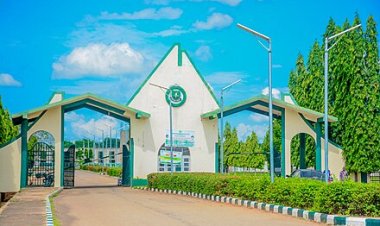Law Students Criticize Tinubu and Government Over Education Crisis
They also called for a state of emergency to be declared in the education sector, citing concerns about infrastructure, academic performance, and overall standards.

Law undergraduates in Nigeria, represented by The Law Students’ Association of Nigeria (LAWSAN), have voiced their concerns over the ongoing crisis in the education sector and the overall hardship in the country. In a statement signed by their leader, Anyiam Christian Kelechukwu, the students expressed disappointment with the Federal Government's response to the challenges.
The statement highlighted the impact of the recent strike initiated by the Nigerian Labour Congress (NLC) and the Academic Staff Union of Universities (ASUU) on students, emphasizing the need for a resolution that prioritizes the welfare of all parties involved.
READ ALSO:Pure Water Seller With Stellar JAMB Score Earns University Scholarship
LAWSAN criticized both the government and organized labor for their handling of the situation, calling for a more realistic approach to negotiations regarding wage increases and economic policies. They emphasized the importance of dialogue and urged all parties to prioritize the well-being of Nigerian workers and students.
Additionally, the students urged the government to take immediate action to address inflation, achieve food and physical security, and stabilize the economy. They also called for a state of emergency to be declared in the education sector, citing concerns about infrastructure, academic performance, and overall standards.
RECOMMENDED FOR YOU:No Nigerian University Makes Top 1000 Global Universities Ranking for 2025
LAWSAN's statement underscores the growing frustration among Nigerian students and the urgent need for comprehensive reforms to address the challenges facing the education system and the country as a whole.





